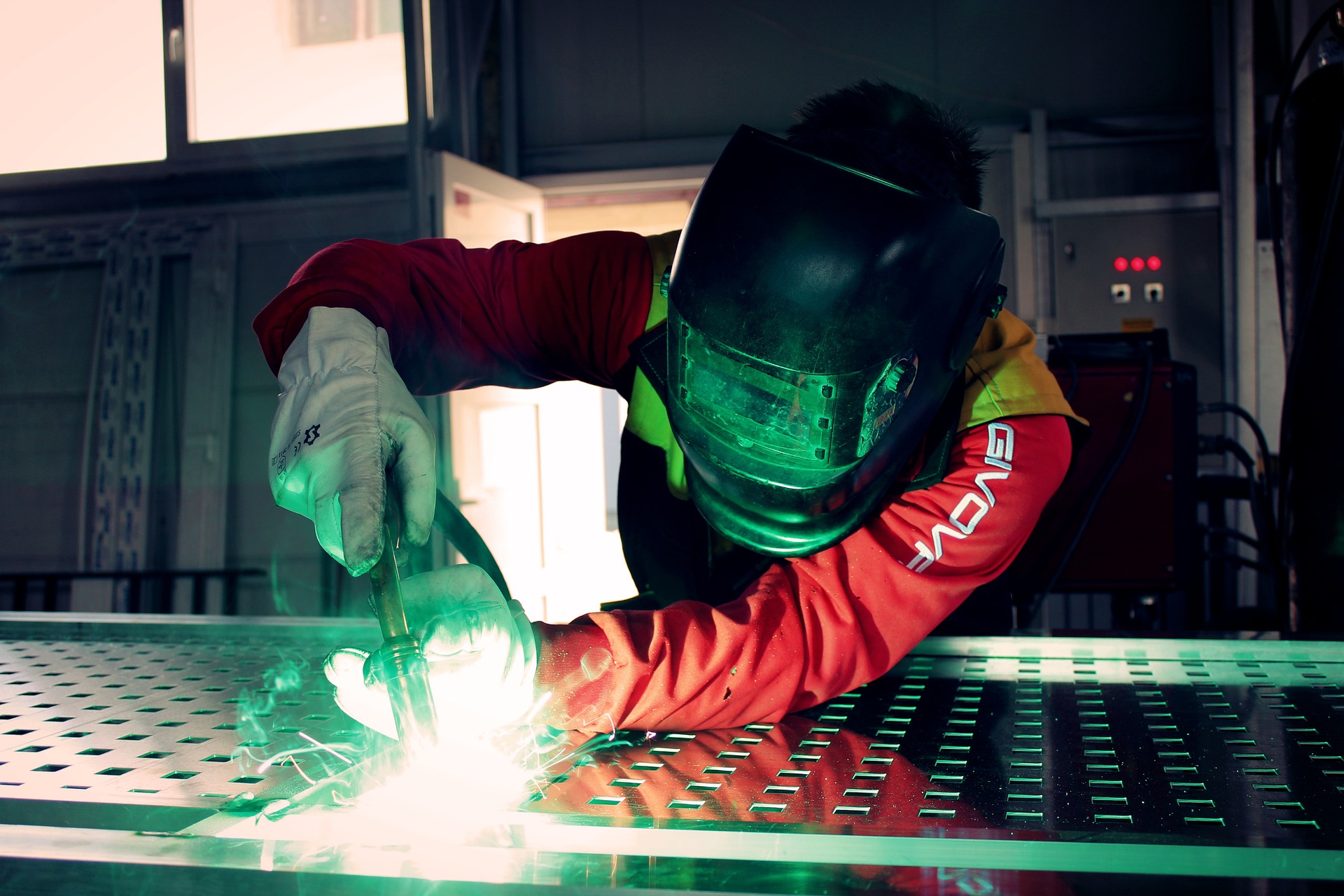Welding Jobs: A Comprehensive Guide to Career Opportunities in the Industry
Welding is a critical skill that plays a vital role in various industries, from manufacturing to construction and shipbuilding. As the backbone of many industrial processes, welding offers a diverse range of career opportunities for skilled professionals. This article explores the world of welding jobs, highlighting the industries that rely on welders, the skills required, and the potential for growth in this essential field.

The construction industry also heavily relies on welding professionals. From skyscrapers to bridges, welders play a crucial role in ensuring the structural integrity of buildings and infrastructure. They work on-site, often in challenging conditions, to join metal beams, pipes, and other elements that form the skeleton of various structures.
Shipbuilding is another sector where welding expertise is indispensable. Welders in this field work on creating and repairing vessels of all sizes, from small boats to massive ocean liners and naval ships. The work in shipyards requires precision and the ability to work in confined spaces, often dealing with complex designs and specialized materials.
What skills are essential for a successful welding career?
To thrive in the welding industry, professionals need a combination of technical skills and personal attributes. First and foremost, welders must master various welding techniques, including MIG (Metal Inert Gas), TIG (Tungsten Inert Gas), and stick welding. Each method has its applications and requires specific skills to execute properly.
Beyond technical proficiency, welders need excellent hand-eye coordination and attention to detail. The ability to read and interpret blueprints and technical drawings is crucial, as welders often work from complex plans that require precise execution. Additionally, basic math skills are necessary for calculating measurements and angles.
Safety consciousness is paramount in welding jobs. Welders must be well-versed in safety protocols and consistently adhere to them, given the inherent risks associated with working with high temperatures and potentially hazardous materials. Physical stamina and strength are also important, as the job often involves working in awkward positions for extended periods.
How does the welding industry contribute to economic growth?
The welding industry plays a significant role in driving economic growth across various sectors. In manufacturing, welders contribute to the production of goods that are essential for both domestic use and export, supporting trade and commerce. The automotive industry, for instance, relies heavily on welding for vehicle production, which is a major economic driver in many countries.
In the construction sector, welding is fundamental to the development of infrastructure. As cities expand and modernize, the demand for skilled welders grows, contributing to job creation and economic development. Large-scale construction projects, such as airports, stadiums, and industrial complexes, require substantial welding work, stimulating local economies through employment and supply chain activities.
Shipbuilding, another welding-intensive industry, has a significant economic impact, particularly in coastal regions. The construction and maintenance of ships support not only direct welding jobs but also a wide range of associated industries, from steel production to marine equipment manufacturing.
What are the career advancement opportunities for welders?
Welding offers numerous pathways for career advancement and specialization. Entry-level welders can progress to become lead welders or supervisors, overseeing teams and managing projects. With experience and additional certifications, welders can specialize in high-demand areas such as underwater welding, which commands higher salaries due to its challenging nature.
Many welders also transition into inspection roles, becoming welding inspectors or quality control specialists. These positions require a deep understanding of welding techniques and standards, as well as the ability to identify defects and ensure compliance with safety regulations.
For those interested in the business side of the industry, experienced welders can move into management positions, such as project managers or even start their own welding businesses. Additionally, some welders choose to pursue careers in welding education, teaching the next generation of professionals in vocational schools or community colleges.
How is technology shaping the future of welding jobs?
Technology is rapidly transforming the welding industry, creating new opportunities and challenges for professionals. Automation and robotics are becoming increasingly prevalent in manufacturing settings, with robotic welding systems taking on repetitive tasks. However, this shift doesn’t necessarily mean fewer jobs for welders. Instead, it’s creating a demand for welders with advanced technical skills who can program, operate, and maintain these sophisticated systems.
Virtual reality (VR) and augmented reality (AR) are also making their way into welding training programs. These technologies allow for safe, cost-effective practice environments where new welders can hone their skills before working on real projects. As these tools become more widespread, welders with experience in VR and AR applications may find themselves at an advantage in the job market.
The development of new materials and welding techniques is another area where technology is driving change. As industries seek stronger, lighter, and more durable materials, welders must continually update their skills to work with these innovative substances. This ongoing evolution ensures that welding remains a dynamic and rewarding career choice for those willing to embrace lifelong learning and adapt to technological advancements.
In conclusion, welding jobs offer a diverse and promising career path for those interested in hands-on work that combines technical skill with creativity. From manufacturing to construction and shipbuilding, the demand for skilled welders continues to grow, providing ample opportunities for professional development and specialization. As technology continues to shape the industry, welders who stay current with new techniques and technologies will find themselves well-positioned for success in this essential and evolving field.






